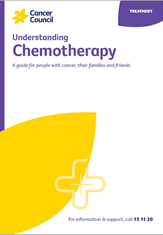- Home
- Skin cancer
- Treatment
- Topical treatments
Topical treatments for skin cancer
Some skin spots and superficial skin cancers can be treated with creams or gels that you apply to the skin. These are called topical treatments. They may contain immunotherapy or chemotherapy drugs, and are prescribed by a doctor.
Only use these treatments on the specific spots or areas that your doctor has asked you to treat. Don’t use leftover cream on spots that have not been assessed by your doctor.
Learn more about:
Immunotherapy cream
A cream called imiquimod is a type of immunotherapy that causes the body’s immune system to destroy cancer cells.
Imiquimod is used to treat sunspots and superficial basal cell carcinomas (BCCs). Your doctor will explain how to apply the cream and how often. For superficial BCCs, the cream is commonly applied directly to the affected area at night, usually 5 days a week for 6 weeks.
What to expect after
Within days of starting imiquimod, the treated skin may become red, sore or tender. It may peel and scab over before it gets better.
Some people experience pain or itching in the affected area, fever, achy joints, headache and a rash. If you notice any of these more serious side effects, stop using the cream and see your doctor immediately.
Chemotherapy cream
A cream called 5-fluorouracil (5-FU) is a type of chemotherapy drug used to treat sunspots and sometimes squamous cell carcinoma (SCC) in situ (Bowen’s disease).
5-FU works best on the face and scalp. Your doctor will explain how to apply the cream and how often. Many people use it once or twice a day for 2–4 weeks. It may need to be used for longer for some skin cancers.
While using the cream, your skin will be more sensitive to UV radiation and you will need to stay out of the sun.
What to expect after
The treated skin may become red, blister, peel and crack, and feel uncomfortable. These effects will usually settle within a few weeks of finishing treatment.
Radiation cream
As at December 2023, there are no guidelines or recommendations on the use of topical radiation creams such as Rhenium-188. Information on its effectiveness and side effects is needed before it may be considered a standard treatment.
→ READ MORE: Photodynamic therapy
Podcast: Making Treatment Decisions
Listen to more podcasts for people affected by cancer
A/Prof Victoria Mar, Director, Victorian Melanoma Service, Alfred Hospital and Monash University, VIC; Tracey Bilson, Consumer; Raelene Buchan, Consumer; Alison Button-Sloan, Consumer; Dr Margaret Chua, Radiation Oncologist, and the Skin Radiation Oncology team, Peter MacCallum Cancer Centre, VIC; Prof Anne Cust, Deputy Director, The Daffodil Centre, The University of Sydney and Cancer Council NSW, Chair, National Skin Cancer Committee, Cancer Council, and faculty member, Melanoma Institute Australia; A/Prof Paul Fishburn, Skin Cancer Doctor, Norwest Skin Cancer Centre, NSW and Faculty of Medicine, University of Queensland; Danielle Goss, Melanoma Clinical Nurse Specialist, Amie St Clair Melanoma (part of Melanoma Institute Australia), Wagga Wagga, NSW; Louise Pellerade, 13 11 20 Consultant, Cancer Council WA: Dr Shireen Sidhu, Head of Dermatology, The Royal Adelaide Hospital, SA; Dr Amelia Smit, Research Fellow – Melanoma and Skin Cancer, The Daffodil Centre, The University of Sydney and Cancer Council NSW; Dr Tony Tonks, Plastic and Reconstructive Surgeon, Canberra Plastic Surgery, ACT.
View the Cancer Council NSW editorial policy.
View all publications or call 13 11 20 for free printed copies.


